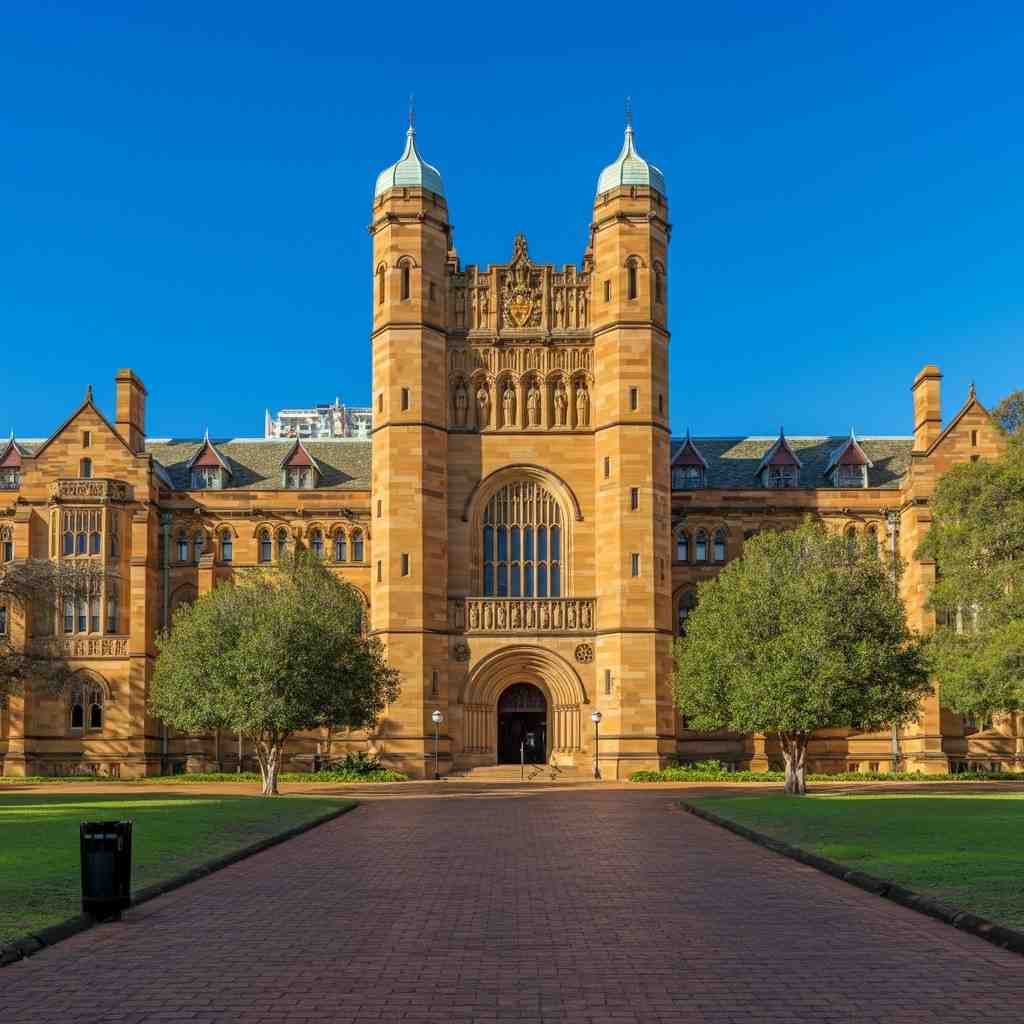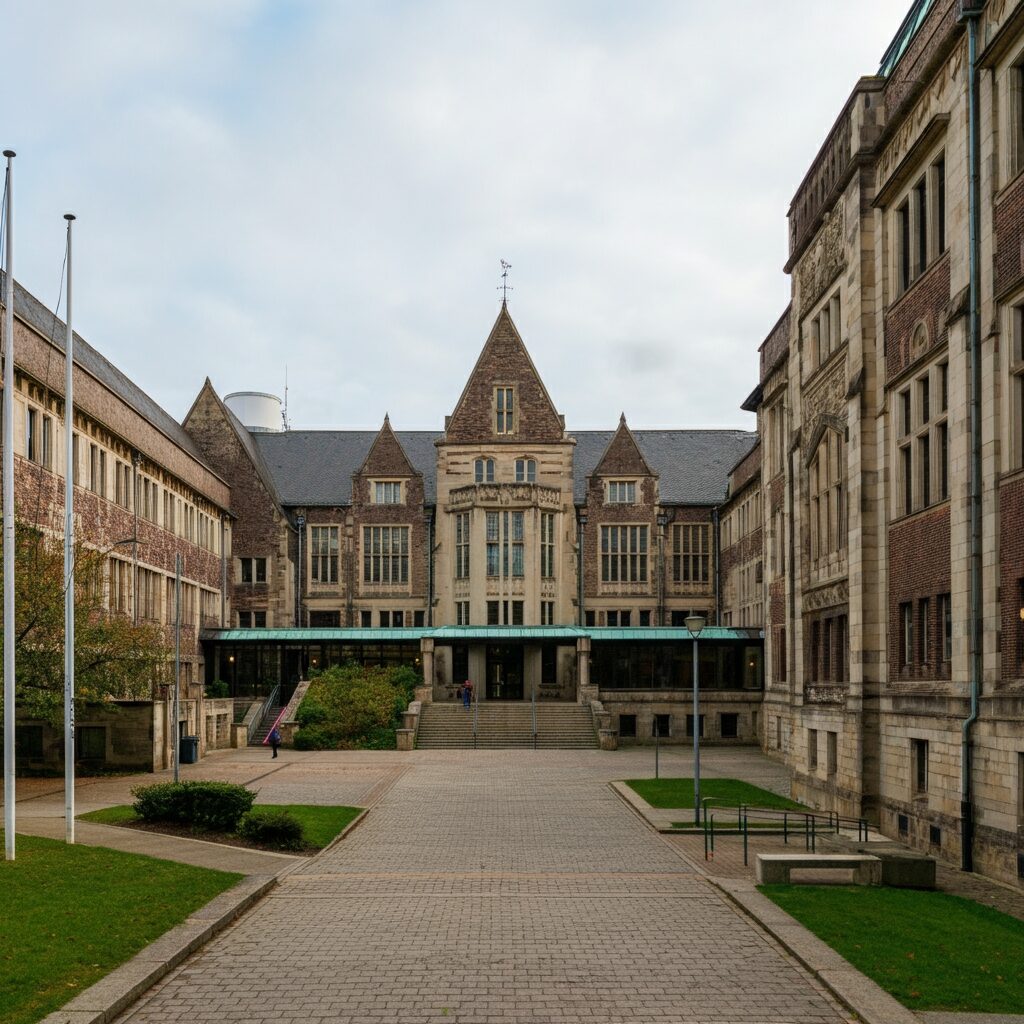MSc Nursing in Australia offers international students a pathway to advanced healthcare careers through high-quality education and globally recognised qualifications. This complete guideline provides all international students need to know about Australia’s nursing master’s degree programs, including their entrance criteria, national academic providers, job opportunities and visa applications.
Understanding MSc Nursing Programs in Australia in 2025
Registered nurses in Australian Master of Nursing programs receive knowledge, clinical training, and research abilities, which guide their career development. Students can complete this education through full-time attendance in 1-2 years, and part-time learners have flexible study options.
Australian educational institutions provide different types of nursing master’s degrees to students through their academic programs.
- Master of Nursing (MN)
- Master of Science in Nursing (MSc Nursing)
- Master of Clinical Nursing
- Master of Advanced Nursing
- Master of Nursing Practice (MNP)
The study duration of these programs extends to a four-semester period as students learn through theoretical and practical experiences during their two-year educational program. The educational program comprises Nursing Bioscience, Mental Health Practice, Nursing Practice Capstone and Palliative Care Nursing as curricular elements.
What makes MSc Nursing in Australia particularly valuable is the availability of two distinct program types: those providing nursing registration in Australia (allowing immediate practice) and those focused on enhancing nursing knowledge for further education or specialisation. Graduates can work in nursing practice after finishing registration programs, which demand over 800 clinical placement hours that build their readiness.
The University of Melbourne delivers a special curriculum design combining clinical practice and theoretical education in a unified format for better student learning.
Latest MSc Nursing in Australia Eligibility Requirements 2025
International students must meet academic and language requirements to qualify for the MSc Nursing in Australia. learners need to understand these requirements because they determine selection entry.
Academic Requirements
- Bachelor’s degree in Nursing or related health science field
- The university must accredit all undergraduate programs where students earn at least a 4.0 grade point average on the 7.0 scale, which equals an undergraduate GPA of 63 to 66 per cent.
- To study at Australian educational institutions, Indian students must achieve at least 60% throughout their 10+2 education.
The requirements at each university exist in their forms. The University of Melbourne requires students to have a WAM (Weighted Average Mark) reaching 65 or higher, and the University of Queensland requires a 4.0 out of 7.0 GPA.
English Language Proficiency
Nursing in Australia requires exceptional proficiency in the English language. Thus, healthcare organisations have established strict language entry criteria.
- IELTS: 7.0 (no band less than 7.0)
- Based on institutional requirements, graduates must achieve TOEFL scores between 94 and 100.
- OET: B score in each of the 4 components
- PTE: 65-72 (varies by university)
Australian master’s nursing programs rejected more than 30% of their international student applications during 2023 because these students could not fulfil the IELTS 7.0 language requirement.
Additional Requirements
- 3-4 years of nursing experience (for some specialised programs)
- Well-written Statement of Purpose (SOP)
- Updated CV
- Valid passport
Australia student visa (Subclass 500)
The admission process for MSc Nursing programs in Australia begins with completing the required criteria. However, some institutions might have minor variations in their standards; therefore, requirements at each university should be verified.
MSc Nursing Fees in Australia
Understanding the financial commitment required for MSc Nursing in Australia is crucial for international students planning their education. Students can expect Australian MSc Nursing tuition fees to cost AUD 24,000-52,000 annually, which translates to INR 13-29 lakhs.
MSc Nursing Tuition Fee Comparison Table 2025
| University | Annual Tuition Fee (AUD) | Equivalent Fee for Indians (INR) |
| The University of Sydney | 52,000–53,600 | ₹29–29.89 lakhs |
| University of Technology Sydney | 41,460 | ₹23.12 lakhs |
| The University of Melbourne | 36,832 | ₹20.54 lakhs |
| The University of Queensland | 41,120 | ₹22.93 lakhs |
| Deakin University | 38,600 | ₹21.52 lakhs |
| The University of Newcastle | 42,550 | ₹23.73 lakhs |
| University of Adelaide | 40,000–52,000 | ₹22.30–28.99 lakhs |
| Curtin University | 36,603 | ₹20.41 lakhs |
Nursing registration programs in Australia maintain higher tuition costs than typical nursing master’s programs because they need clinical placement activities and specialised educational materials.
Living Expenses in Australia: Experts’ Insights 2025
The monthly living costs for international students studying in Australia are AUD 2,688 (INR 1.49 lakhs). This includes:
- Accommodation: AUD 800-1,500 per month
- Food: AUD 400-600 per month
- Transportation: AUD 150-200 per month
- Utilities and internet: AUD 150-200 per month
- Entertainment and personal expenses: AUD 300-500 per month
International postgraduate nursing students typically invest AUD 82,000–95,000 throughout their two years of study, as per information on the Study in Australia portal. Countless considerations should be considered before studying in Australia because of the major financial commitment involved.
Top Universities for MSc Nursing in Australia 2025
Various international universities based in Australia deliver top MSc Nursing programs to students. The educational programs at these nursing institutions hold status from the Australian Nursing and Midwifery Accreditation Council (ANMAC) as they maintain standards for nursing and midwifery education.
University of Sydney (#14 QS Ranking)
- Program: Master of Nursing
- Duration: 2 years
- Annual Tuition: AUD 52,000 (2024), AUD 53,600 (2025)
- Notable features: Strong clinical partnerships with leading hospitals
Monash University (#21 QS Ranking)
- The educational offering includes both the Master of Nursing Practice and the Master of Advanced Nursing programs at this institution.
- Duration: 2 years
- Annual Tuition: AUD 43,500
- Notable features: Excellent research facilities and international collaborations
- University of Melbourne (#27 QS Ranking)
- Program: Master of Nursing Science
- Duration: 2 years
- Annual Tuition: AUD 36,832
- A defining characteristic is their distinctive model, which teaches patients simultaneously with clinical skills and theoretical instruction.
University of Technology Sydney (#24 QS Ranking)
- Program: Master of Nursing (Research)
- Duration: 2 years
- Annual Tuition: AUD 41,460
- Notable features: Strong industry connections and innovative teaching methods
University of Queensland (#37 QS Ranking)
The Australian educational institutions provide two graduate-level nursing degrees, the Master of Advanced Nursing and the Master of Nursing.
- Duration: 1-2 years
- Annual Tuition: AUD 41,120
- Notable features: Excellent clinical placement opportunities
Students throughout these universities can establish their nursing expertise by focusing on critical care, mental health, and pediatric nursing as well as nurse practitioner programs. These institutions hold their educational programs in high regard, which creates global interest in their graduate students as desirable candidates in the employment market.
MSc Nursing in Australia for Indian Students
Indian students considering MSc Nursing in Australia face unique challenges and opportunities. Understanding these particular requirements helps students transition to Australian nursing programs more successfully.
Pathway Options
Indian students lack direct acceptance of their bachelor’s degree in nursing from India when applying for a Master of Nursing in Australia, so they need to take different educational routes instead.
- Australasian nursing bachelor’s form (3 years) should be completed as the first step in education.
- The courses of study for nursing should begin with TAFE certification, followed by bachelor-level education, during which students can earn their master’s degree
Latest Benefits for Indian Students in Australia 2025
The following benefits appeal to Indian students when they study nursing in Australia:
- Indian students gain a superior practical nursing education compared to students across other educational systems worldwide.
- Higher earnings (approximately 10% more than in India)
- Indian nursing practitioners must fulfil no additional practice standard examinations in Australia, unlike Canada.
- Choice of specialisation from over 15 options
Latest Visa Information for Nursing in Australia for Indians 2025
Indian students require:
- Australia Student Visa (Subclass 500)
- Letter of acceptance from the university
- Confirmation of Enrollment (Coe)
- Proof of English proficiency
- Genuine Student (GS) requirement
- Proof of financial capacity
- Character requirements
Processing your visa lasts four to twelve weeks, or 1 to 3 months, where application numbers affect wait times. The Temporary Graduate Visa enables new nursing graduates to stay for 2 years after graduation, and skilled nurses can obtain a Subclass 189 Skilled Independent visa valid for 3 years.
The competition for nursing programs in Australia is strong, so minimum requirements alone do not ensure admission acceptance for Indian students. Students who apply early with complete documents prepared have improved odds of receiving admission acceptance.
Latest Application Process for MSc Nursing in Australia 2025
The application process for MSc Nursing in Australia requires careful planning and preparation. Following these precise instructions leads to a trouble-free application process.
Step 1: Research and planning ( 6 months before the deadline)
- Students interested in nursing should focus on universities which offer their preferred nursing discipline.
- Evaluate different programs by analysing their length of studies, tuition costs and educational content structure.
- Review all individual admission specifications that universities have established.
Step 2: Check eligibility (4-5 months before deadline)
- Your qualifications need to match all admission requirements.
- English proficiency examinations must be taken if required.
- Prepare for any additional assessments.
Step 3: Application Submission (4 months before program start)
- Submit applications to the chosen universities.
- Provide all required supporting documents.
- Pay application fees
Step 4: Accept the Offer and Apply for a Visa
- Receive and accept the offer letter
- Obtain Confirmation of Enrollment (Coe)
- Apply for a student visa (Subclass 500)
Check your chosen university program because it determines nursing registration in Australia, since universities provide programs with different outcomes. Your ability to practice as an Australian registered nurse depends on this program distinction.
The admission procedure becomes especially challenging when students seek enrollment at prominent educational institutions. A strong application, academic performance results, nursing experience, and clear study motivation toward Australian nursing positions make you better suited for university admission.
Career Prospects and Salary After MSc Nursing in Australia: Experts’ Insights 2025
Supernumerary MSc Nursing graduates from Australia find excellent job opportunities and appealing starting salaries. The Australian healthcare sector gives top priority to nurses who hold advanced degrees, together with specialised training or academic qualifications.
Common Career Paths
- Nurse Practitioner: AUD 90,000-120,000 per year
- Clinical Nurse Specialist: AUD 85,000-110,000 per year
- Mental Health Nurse: AUD 70,000-90,000 per year
- Nurse Anaesthetist: AUD 100,000-130,000 per year
- Critical Care Nurse: AUD 80,000-100,000 per year
Salary by Location
- Perth: AUD 79,635 (highest average)
- Melbourne: AUD 77,629
- Sydney: AUD 76,963
- Westmead: AUD 77,361
- Geelong: AUD 67,000-95,000
- Ballarat: AUD 75,000-80,000
Master’s qualified nurses in Australia earn an annual wage between AUD 73,000 and AUD 120,000 per year.
Post-Study Work Visa Options in Australia 2025
- Temporary Graduate Visa (subclass 485): Valid for 2 years
- Skilled Independent Visa (subclass 189): Valid for 3 years for qualified nurses
- A practising nurse must have NMBA registration to practice in Australia.
The Australian healthcare sector demands more nurses due to nursing appearing on the Medium and Long-term Strategic Skills List (MLTSSL) throughout Australia. The work visa opportunities stemming from this situation provide international graduates with great potential to stay in Australia after graduation.
Also Read: Physiotherapist Salary Australia: Latest Scope, Pay, Tips & More
Latest Scholarships for MSc Nursing Students in Australia 2025
Australian institutions make multiple scholarship funds accessible to international students undertaking MSc Nursing programs in Australia. Study abroad expenses decrease substantially with these various financial scholarship opportunities.
| Scholarship | Provider | Value | Deadline |
|---|
| Australia Awards Scholarship | Australian Govt | Full tuition + allowance | Varies |
| Endeavour Postgraduate Scholarship | Australian Govt | Full tuition + stipend | Aug–Sep |
| Monash International Scholarship | Monash University | AUD 10,000 | October |
| Deakin Nursing Scholarship | Deakin University | Partial tuition waiver | Varies |
University-Specific Scholarships
- University of Sydney International Scholarships
- Monash International Merit Scholarships
- Melbourne International Research Scholarships
- UQ International Student Scholarships
Government Scholarships
- Australia Awards Scholarships
- Endeavour Postgraduate Scholarships
- Students who enrol in research-based nursing degrees through the Research Training Program (RTP) have scholarship options.
Country-Specific Scholarships
- Australia-India Nursing Scholarship Program
- Australia-ASEAN Scholarships for Southeast Asian students
The offered scholarship benefits include comprehensive arrangements that grant full tuition waivers and provide financial support to students for living expenses, and less comprehensive scholarships provide partial fee relief payments. Different scholarship applications carry varying requirements and deadline specifications; thus, students must research while submitting their applications promptly.
International nursing students in Australia who study can work 48 hours each fortnight when classes are in session and without limits during the scheduled educational breaks. This enables students to manage their study expenses.
Conclusion
MSc Nursing in Australia offers international students, particularly Indians, an excellent opportunity to advance their nursing careers with globally recognised qualifications. Investing in Australian nursing education comes at affordable prices between AUD 24,000 and AUD 52,000 per year, which guarantees rewarding professional prospects and opening salaries at AUD 73,000 per year. Wise students see this as a desirable educational pathway.
Nursing students can access specialisations and Australian registration entry points at 19 universities with ANMAC accreditation. Success in meeting the eligibility criteria and application needs can be achieved through careful planning ahead of time.
Medical professionals who seek to practice nursing in Australia or plan to return to their home country will find that an MSc Nursing degree from Australia gives them advanced clinical skills and research abilities, together with leadership qualities which healthcare organisations worldwide seek in their staff members.
FAQS About MSc Nursing in Australia
Can I work while studying MSc Nursing in Australia?
Students on student visas can work for 48 hours per two-week period during term time, together with unrestricted hours when school breaks are scheduled. Nursing students who pursue part-time work within healthcare institutions gain practical patient care knowledge while completing their educational curriculum.
Does an Indian educational degree in nursing fulfil the requirements for admission to MSc Nursing programs in Australian educational institutions?
Most educational institutions operating under the Australian higher education system require applicants to provide nursing education that satisfies Australian requirements. Indian students must finish a bridging program or earn an Australian bachelor’s nursing qualification before applying for a Master’s degree.
The duration required to obtain Australian nursing registration after finishing MSc Nursing stands at what period?
Completing the ANMAC-accredited nursing program requires applying for the NMBA (Nursing and Midwifery Board of Australia) registration. Completing the application process requires 4-8 weeks when all conditions are fulfilled.
Can I bring my family with me while studying MSc Nursing in Australia?
Students can include their family members when applying for a student visa. To accompany your family members to Australia, you must show proof of sufficient funds and demonstrate proper medical insurance arrangements.
Nurses must understand which specialisations present the highest employment opportunities within the Australian healthcare market.
The Australian job market demands mental health nurses, aged care nurses, critical care specialists and nurse practitioners as the most needed specialisations. These healthcare fields provide both strong job opportunities and attractive income opportunities.














